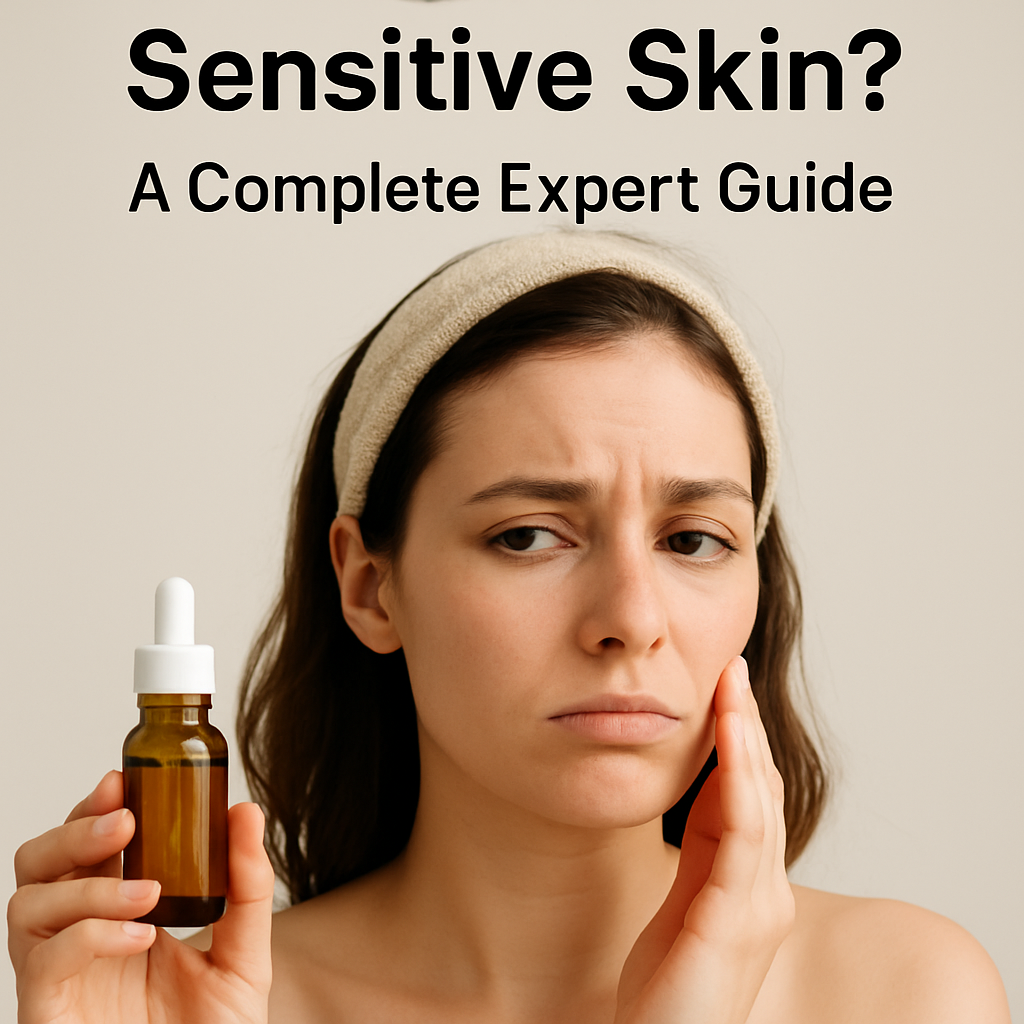Is Retinol Safe for Sensitive Skin? A Complete Expert Guide
Retinol has become one of the most celebrated ingredients in skincare for its powerful anti-aging and acne-fighting benefits. However, if you have sensitive skin, you might hesitate to add retinol to your routine. The question many ask is: Is retinol safe for sensitive skin?
In this expert guide, we’ll explore what retinol does, how sensitive skin reacts to it, tips for safe usage, and product recommendations tailored for gentle yet effective skincare.
What is Retinol and How Does It Work?
Retinol is a derivative of vitamin A that accelerates skin cell turnover, promotes collagen production, and helps unclog pores. These effects make it popular for reducing fine lines, improving texture, and managing acne. However, retinol can also cause dryness, redness, and irritation—especially in sensitive skin types.
Why Sensitive Skin Reacts Differently to Retinol
Sensitive skin has a more reactive barrier, making it prone to inflammation and discomfort. When retinol is applied, it can sometimes trigger irritation because it accelerates the exfoliation process, which can temporarily thin the skin’s protective layer.
Understanding how your skin responds and starting with caution is key to benefiting from retinol safely.
Is Retinol Safe for Sensitive Skin?
The short answer: Yes, but with precautions. Many people with sensitive skin can use retinol effectively if they follow the right approach. The key is to introduce it gradually and choose formulations designed to minimize irritation.
Tips for Using Retinol Safely on Sensitive Skin
- Start Slow: Begin with a low concentration (0.25% or less) and apply it once or twice a week. Gradually increase frequency as your skin builds tolerance.
- Patch Test: Apply a small amount on your jawline or behind your ear to check for adverse reactions before using it on your face.
- Use Moisturizer: Apply a rich, soothing moisturizer after retinol to help reinforce the skin barrier and reduce dryness.
- Avoid Other Irritants: Don’t combine retinol with strong exfoliants, alpha hydroxy acids (AHAs), beta hydroxy acids (BHAs), or products with high alcohol content.
- Apply at Night: Retinol increases skin sensitivity to sunlight, so always apply it in your evening skincare routine and use a broad-spectrum sunscreen during the day.
- Don’t Overuse: More isn’t better. Overusing retinol can worsen irritation and delay skin healing.
Benefits of Retinol for Sensitive Skin
Despite the risks, retinol offers significant benefits even for sensitive skin:
- Improves Skin Texture: Encourages smoother, more even skin.
- Reduces Fine Lines and Wrinkles: Stimulates collagen, improving firmness.
- Fights Acne: Clears clogged pores and reduces breakouts.
- Brightens Skin Tone: Helps fade dark spots and pigmentation.
With proper use, retinol can enhance sensitive skin health without excessive irritation.
Best Retinol Products for Sensitive Skin
Here are some dermatologist-recommended retinol products formulated to be gentle yet effective:
- La Roche-Posay Retinol B3 Serum: Combines retinol with soothing vitamin B3 for reduced irritation.
- CeraVe Resurfacing Retinol Serum: Includes ceramides and niacinamide to support the skin barrier.
- The Ordinary Retinol 0.2% in Squalane: Low concentration in a hydrating base, ideal for beginners.
- Neutrogena Rapid Wrinkle Repair Regenerating Cream: Contains retinol and hyaluronic acid for hydration.
- Paula’s Choice 0.1% Retinol Booster: Allows precise control over retinol levels to build tolerance.
How to Incorporate Retinol into Your Sensitive Skin Routine
A sample evening routine might look like this:
- Gentle Cleanser: Avoid harsh scrubs or foaming cleansers.
- Retinol Application: Apply a pea-sized amount evenly over the face.
- Moisturizer: Follow with a fragrance-free, soothing moisturizer.
- Sunscreen (next morning): Always protect skin after retinol use.
Avoid layering multiple active ingredients on the same night to reduce irritation risk.
Common Myths About Retinol and Sensitive Skin
Myth 1: Retinol is too harsh for sensitive skin.
Fact: When used correctly, retinol can be safely incorporated into sensitive skincare routines.
Myth 2: You have to use high concentrations to see results.
Fact: Even low doses can be effective over time without causing irritation.
Myth 3: Retinol causes permanent skin damage.
Fact: Temporary dryness and redness are common but manageable side effects, not permanent damage.
Conclusion
Retinol is safe for sensitive skin when used thoughtfully. Start with low concentrations, increase usage gradually, and protect your skin with moisturizers and sunscreen. The powerful benefits of retinol—improved texture, reduced wrinkles, and clearer skin—can be enjoyed even by those with delicate skin types.
If irritation occurs, reduce frequency or consult a dermatologist. Sensitivity doesn’t have to mean avoiding retinol altogether—it means using it wisely.

